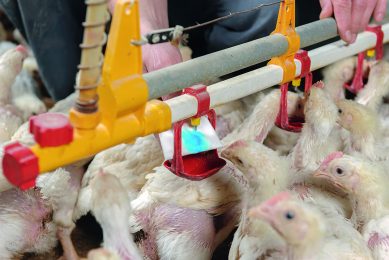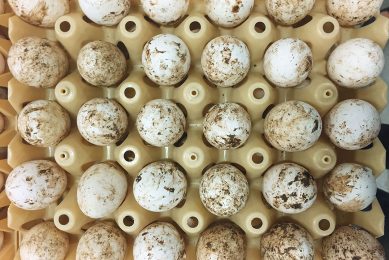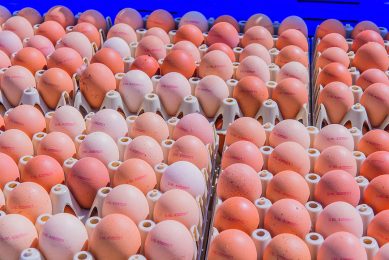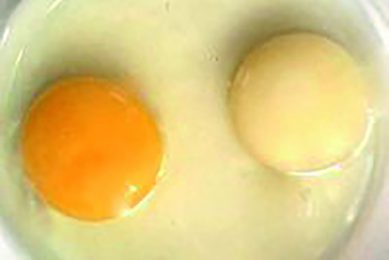How to ensure water quality?
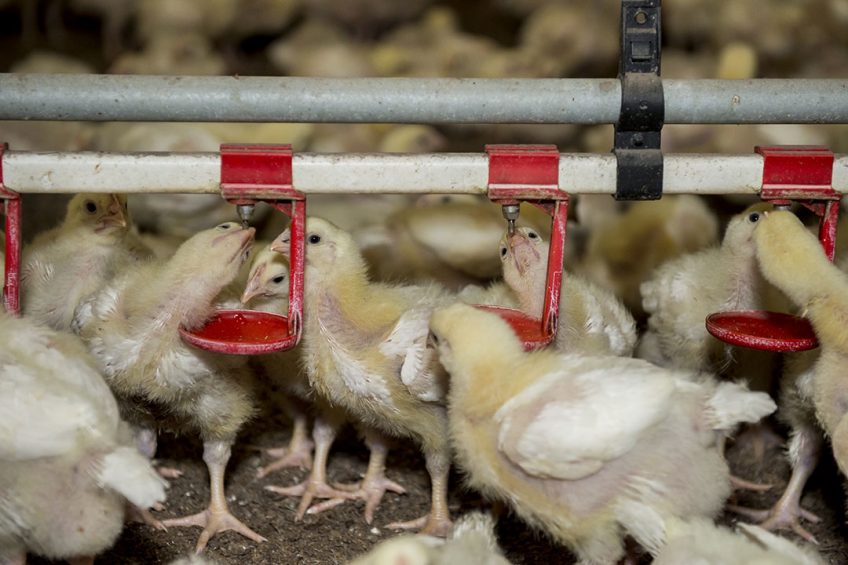
Water is often called the ‘forgotten’ nutrient in broiler farming, as a good water uptake is at least as important as getting the birds on the feed as soon as possible. Therefore, the drinking water should taste pleasant and must not contain any hazardous substances or impurities.
If you suspect the drinking water might be contaminated, have it tested. Always check the quality and temperature of the water at both ends of the line and use your senses to check clarity, smell and taste. If you would not dare to drink the water from the nipples yourself, why do you give it to your birds? As water serves as a solvent for medicines and vaccines, make sure the water line is working properly. Also rinse the pipe out thoroughly afterwards to prevent residues and the build up of biofilm.
8 bird signs that indicate water quality issues
- Lower oxygen uptake in the blood, resulting in lethargic animals, reduced fertility in breeders and blueish comb, lobes and head; cause high nitrite level (> 1 mg/l)
- Respiratory problems; cause high nitrate levels (can be converted into nitrite) (>200 mg/l)
- Diarrhoea; cause high potassium level (>300 mg/l)
- Cerebral symptoms, wryneck and lameness; cause high sodium level (>200 mg/l)
- Blocked nerve conduction, smell of rotten eggs; cause high sulfide level, conversion from sulfate under the influence of bacteria (>250 mg/l)
- Intestinal dysfunction; cause high level of iron (>5 mg/l)
- Intestinal dysfunction, various bacterial problems; cause E. coli (>100 kve/ml)
- Weaker resistance; cause Mycotoxins (produced by moulds)





